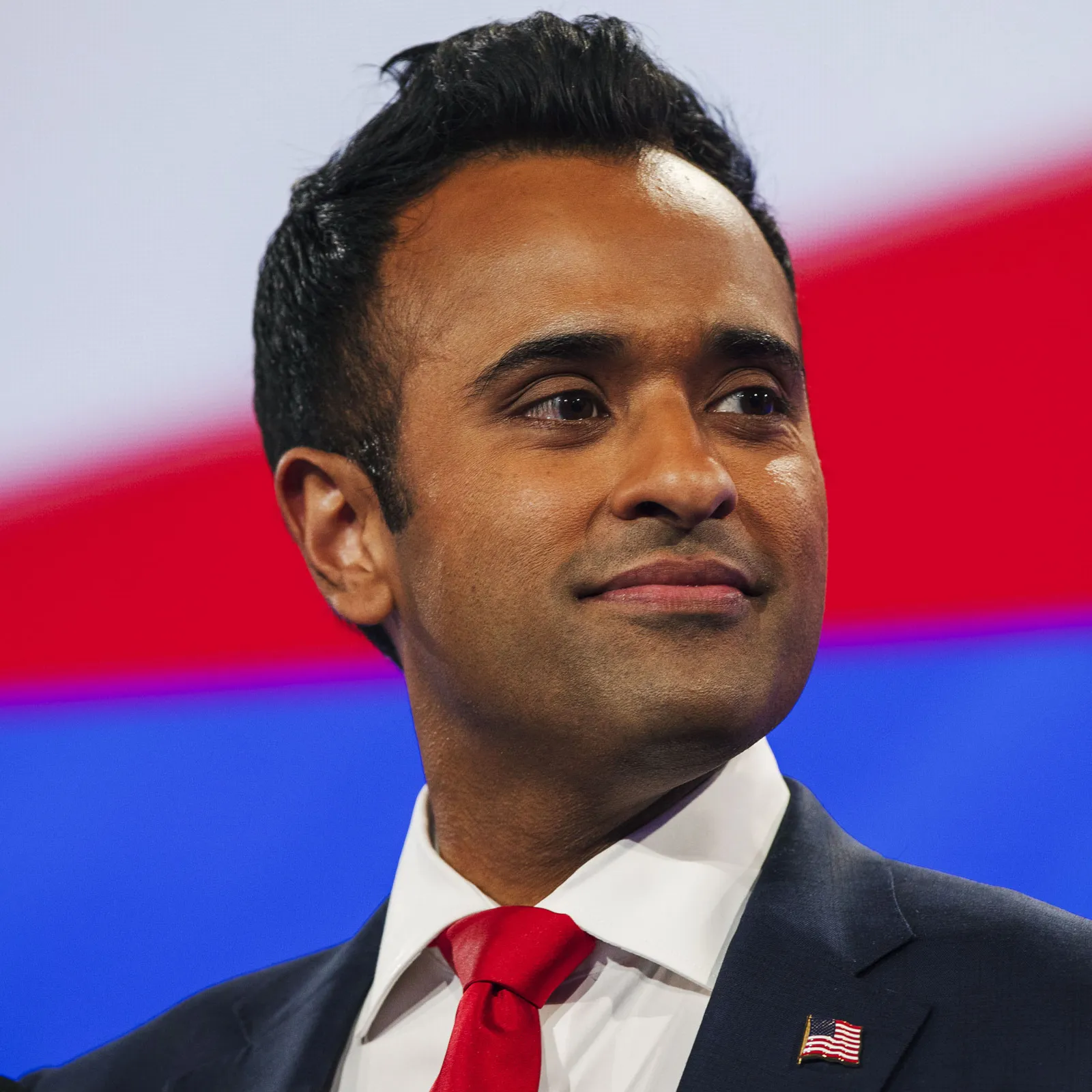GOP presidential candidate
Vivek Ramaswamy

‘I do think there’s a hunger ... right now (for) a leader from the next generation with fresh legs, who can reach and lead the new generation of Americans,’ comments GOP presidential candidate Vivek Ramaswamy. As time winds down for the Jan. 23 New Hampshire primary, GOP presidential contender Vivek Ramaswamy has been making a name for himself but has failed to make much of an impact.
The former biotech executive, who spent considerable time campaigning in New Hampshire, is not mentioned in the narrative that accompanied a Dec. 20 poll conducted by the Saint Anselm College Survey Center, which said 44% of respondents preferred former President Donald Trump, with former Ambassador Nikki Haley attracting 30% of respondents.
Ramaswamy, who recently halted his spending on cable television advertising, was preferred by 6% of poll respondents, the survey said, tying with Florida Gov. Ron DeSantis.
But to find that figure, readers needed to examine the survey data.
Ramaswamy visited the offices of NH Business Review for the “Down to Business” podcast on Dec. 11 for an interview with publisher Ernesto Burden and editor Mike Cote shortly after appearing at a campaign event in Portsmouth.
Q. Donald Trump is by far the frontrunner. How will you or anybody else win the primary?
A. I think that Donald Trump and I are the only two America first candidates in this race. I am a leader from the next generation. I have been the new guy. Many people didn’t know who I was six months ago.
So as the new guy, it does take a while to get to know people, to even build name ID, let alone to build trust and conviction, but we are steadily doing that. The way I’m going to do it is by proving to people that I’m a leader who’s going to speak the truth, not just when it’s easy, but when it’s hard. Not just to the Democratic Party, but when necessary to the Republican Party as well. I do think there’s a hunger for this right now, a leader from the next generation with fresh legs, who can reach and lead the new generation of Americans. And I think that that’s something that I’m bringing to the table in a way that the Republican Party hasn’t seen in a long time.
Q. You’ve said corporations addressing diversity, equity and inclusion and climate change are advancing a government agenda. What role should business play in these things?
A. Let’s start with following the law, OK? I think that many of these DEI agendas, when they’re rammed down the throat of employees, constitute civil rights violations. Now, I’m a person who believes that we don’t need protected classes at all, certainly anymore in this country. Leave it to the market. But you can’t have it both ways to say that as a business; you can’t discriminate based on race or gender or sexuality or sexual orientation or religion or national origin, but somehow you can rampantly discriminate based on the hat that somebody wears of a presidential candidate or a grandmother who wore a red sweater to work on Fridays in celebration of veterans. … The government’s role here is to apply the rules even-handedly. And the role of businesses is a familiar one. Sell products and services to your customers to maximize profit for your shareholders.
Q. The biggest economic problems are lack of workforce and the lack of housing, price of housing. What would you do to fix those problems?
A. Increase the supply of everything that matters by rolling back the government regulations that are constricting that supply. Let’s start with energy. We have regulations that have impeded drilling and fracking in this country. I’m going to roll those back from the Department of Interior to the EPA to elsewhere — drill, frack, burn coal, embrace nuclear energy … That increases the supply of energy, brings down the cost, grows the economy. For housing, roll back those land-use restrictions that are constricting the supply of new home construction. Again, it’s the laws of supply and demand.
The main challenge that most small businesses here and across the country face is finding people to fill those open positions. Stop using our taxpayer money to pay people more, to stay at home instead of going to work. Increase the supply of labor that’s available. I do think it’s going to take a CEO in the White House to be able to grow this economy … Start with zero based budgeting. Don’t start with last year’s budget as the baseline as they’ve done for years, and that’s based on the prior year’s budget, which is broken. Do it the way I’ve run my business as many CEOs run their businesses, start with zero as the baseline and ask what’s actually necessary. That’s how you tackle the national debt.
This interview was edited and condensed for clarity. Listen to the full interview at nhbr.com.